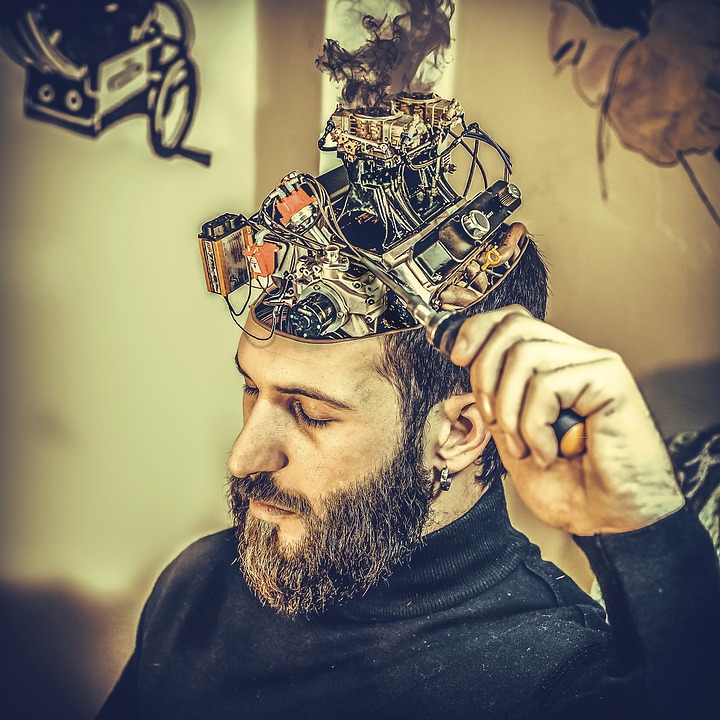In many ways, being yourself is dispelling stereotypes. — Franchesca Ramsey
In thinking about one of the greatest barriers to societal flourishing, there is one psychological bias that stands out above the others: stereotypes.

Surprisingly, it’s because they’re actually evolutionarily useful.
COGNITIVE MISERS
In general, humans don’t like to think. In fact, psychologists to economists regularly refer to people as “cognitive misers” (i.e., we’re stingy about how we spend our mental resources). However, not only are we lazy thinkers (often relying on heuristics or “mental shortcuts”), but we are so bombarded by information regularly. And it’s impossible to process everything.
Hence, stereotypes.
Stereotypes themselves are cognitive schemas or templates that we hold for various social groups. From athletes to librarians to Presidents to vampires, we naturally and automatically create these mental maps to help us process information about others.

In the now classic study demonstrating this, researchers had participants complete two different tasks at once.
For “Task 1,” participants were shown names of individuals and provided traits about them that they were supposed to memorize. For “Task 2”—which happened at the same time—participants had to listen to and remember information from a tape-recording about Indonesia.
Now, for half of the participants, they were provided stereotypes (e.g., “athlete”) during Task 1’s impression formation (i.e., remembering the traits of various people). The other half of participants were simply provided the person’s name.
Later, participants were asked to recall as many traits as they could (for each of the people) as well as many facts as they could about Indonesia. And on both personal traits and Indonesian facts, those who were provided a stereotype remembered more!
In essence, this research shows us how stereotypes can help free up our cognitive processing. That is, they allow us to organize and more easily store social information, allowing us to devote more mental processing to other tasks.
FASTER DOESN’T MEAN BETTER

And the same is true with stereotypes.
In another classic study, researchers gave participants information about a defendant who was being accused of criminal assault. In the evidence against this person, it was a 50-50 split between incriminating and exonerating evidence.
Importantly, half of the participants were given a stereotype about the defendant (i.e., he was described as Hispanic), whereas the other half were not.
Similar to the prior study, those who were given a stereotype were able to remember more of the evidence that was presented. However, they tended to have a biased memory in that they remembered more of the incriminating evidence.
As a result, those given the stereotype rated the defendant as guiltier. In essence, then, although the stereotype allowed them to take in more information, it was a very biased side of the information.
STOPPING THE STEREOTYPING

There is a big difference between acknowledging stereotypes exist as well as their purpose in the brain and endorsing them as reflections of reality. As a psychophilosopher yourself, dear reader, it’s always important to question, pause, and take control of those knee-jerk reactions of the mind so we can make the judgments we want to make. And in doing so, hopefully we make the world a more tolerant and hospitable place.
Anti-Stereotypically,
jdt
Psych•o•philosophy to Ponder: Although it may seem contrary—and inflammatory—to say this, research does suggest that there is a “kernel of truth” to stereotypes. Or in other words, stereotypes are less inaccurate than we would otherwise hope. However, the research (and researchers) advocating these findings fail to consider and emphasize some very important caveats:
- Stereotypes are often accurate at the group level, rather than the individual. That is, although stereotypes may sometimes capture commonalities about groups, individuals vary widely and so it is only the mean (or average) that stereotypes reflect. Or in other words, they’re less accurate on a person to person basis.
- With the previous point in mind, a stereotype judges a person before they’ve ever shown behaviors to “confirm” it. That is, even if a stereotype about a group you belong to has a kernel of truth to it, it pre-defines a person before you get to know them. As such, your pre-definition–and the subsequent self-fulfilling prophecy–could be at work here.
- Stereotypes often encompass many traits, not just a single one. For example, although there may be a stereotype that athletes are hardworking, the stereotype also includes negative traits like lower intelligence. Just because a stereotype may be accurate for one of those traits, though, it doesn’t mean they’re accurate for all. Similarly, just because a person may reflect one stereotypic trait, it doesn’t mean they reflect the others, too.
- When we stereotype someone, we’re making a dispositional attribution—which we know from last week is a psychological bias. That is, when we stereotype someone, we essentially attribute that stereotyped trait to internal characteristics about the person rather than contextual or historical factors that may have led to it. For an example, read this previous post about how historical factors led to some of the negative stereotypes about African Americans today—stereotypes, I will emphasize, that are inaccurate to their core.
Bodenhausen, G. V. (1988). Stereotypic biases in social decision making and memory: Testing process models of stereotype use. Journal of personality and social psychology, 55(5), 726.
Macrae, C. N., Milne, A. B., & Bodenhausen, G. V. (1994). Stereotypes as energy-saving devices: A peek inside the cognitive toolbox. Journal of personality and Social Psychology, 66(1), 37.

